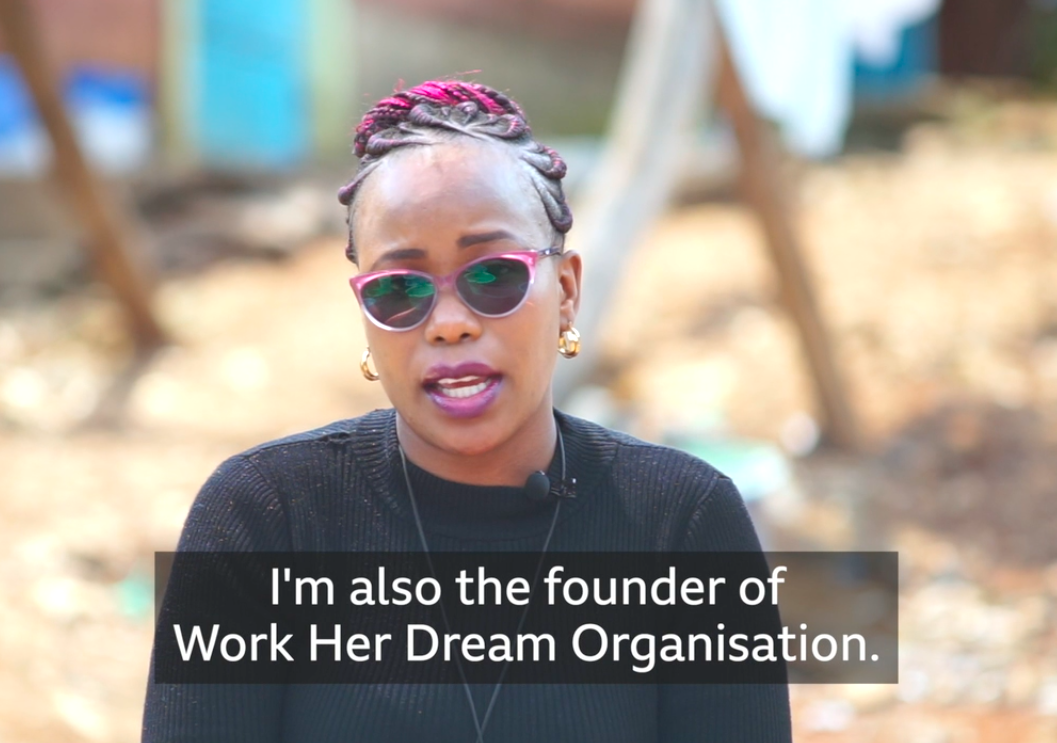Lily Okeyo is a counselling psychologist passionate about teaching sex education to girls and boys in Kenya where one in five girls start having children before they reach the age of 19.
In communities in Kenya, sex education at home is a taboo topic.
“I grew up in a home that was very restricted in terms of what you can talk about and it was mostly controlled by very strict religious beliefs, my dad being a pastor and my mum being a Christian her whole life. So when I was a teenager we never had a conversation about being a girl.
What my dad told me was: ‘don’t allow men to touch because you will get pregnant’. By the time I was finishing high school there was this guy who was really into me and he made me believe that I could have sex and there would be no consequences. So I had sex for the first time and I got pregnant.”
While Lily is using her lfe experience and profession to start conversations about sex, most girls in Kenya who have not been reached yet through her organisation, go through not only traumatisation through childbirth but also stigma of being teenage mothers.
“I understand the trauma that comes with being pregnant when you are a teaenager. You’ll find these girls go through stigmatisation from the community and from their families.
They get bullied at school. The children around them start calling them names like ‘you’re already a baby giving birth to a baby’. The teachers also tend to do name-calling.
The child feels they no longer belong and they choose to drop out and it also traumatises them mentally.”
According to a 2014 Kenya Data and Health Survey, 13,000 girls drop out of school due to teenage pregnancy.
Lily Okeyo says some of the cases of pregnancies that are happening in communities are teen-teen voluntary sex as a result of enticement. While others are as a result of defilement.
“Getting children to open up is so hard. We have ice-breaker activities like songs that we sing. We do jokes and dancing. We do a lot of activities to help the children break the ice and build trust. We guarantee them confidentiality within the safe space.”
In class, the girls are tasked to describe defilement. They answer it.
“The children understand what is going on. Sometimes their experience with doing sex education, I get suprised.”
And parents, equally see the impact and benefits of welcoming the idea of discussing sex education at home.
“Liz Ateino, mother of a student says “I take my chld to the sex ed class because I have seen its results. My daughter stays at home, she is obedient and helps with the house chores. Sometimes you find her reading even during the holidays.”
Lily Okeyo believes every parent should start the conversation at home as well.
“I feel sex education has to be done by all parents, not just mothers, and other community elders. I feel so happy when I see a girl studying and finishing school without getting pregnant. It makes me so happy.”
“I’m happy for these children who have personally put time into actually valuing the information we give them, internalising it and then making it part and parcel of themselves. It makes me feel really happy and proud.”
As the founder of an NGO, Work Her Dream, Lily Okeyo wants to see the numbers of teenage pregnancy go down significantly in Kenya.
“I would also like to have more partners who are coming obaord to bring sex education to the ground and to the community level, where it is accessible to all children.”
The Kenyan government says it is committed to end teenage pregnancy by 2030.














